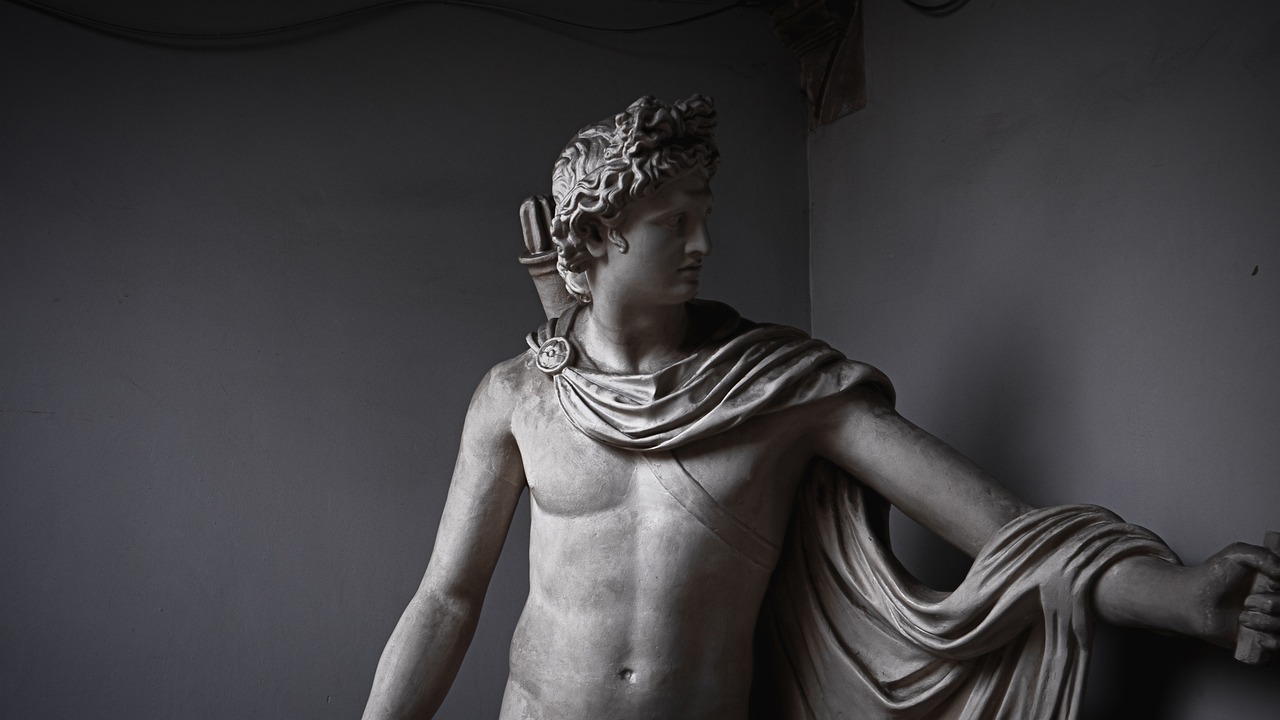Tag: Pluto
-
The Abduction of Proserpina: A Roman Interpretation Greek and Roman Names – Greek: Περσεφονη (Persephonê) – Roman: Proserpina – Underworld Gods: Ἁιδης (Hades) / Pluto, Dis The tale of the abduction of Proserpina, known as “The Rape of Proserpina,” offers a Roman perspective on the story of Proserpina, the goddess of spring, who was abducted…
-
Pluto, the deity associated with the Underworld in Roman mythology, is known for choosing not to dwell among the other gods on Olympus, preferring the solitude of the realm beneath the earth. His Greek equivalent, Hades, shares much in common with him. Family Background Pluto, or Hades, is the offspring of the Titans Saturn (Cronus)…
-
The tale of Proserpina and Pluto, as narrated in Ovid’s “Metamorphoses,” depicts a forced union between the god of the Underworld and Ceres’ daughter, Proserpina. This event was initiated by Cupid, who struck Pluto with a golden arrow to incite instant desire, acting on the wishes of Venus, the goddess of love. Venus asserted that…
-
In the realm of ancient Roman mythology, Pluto is recognized as the deity governing the Underworld, where souls transit after their earthly existence. Known alternatively as Dis Pater or Orcus, he is often compared to his Greek counterpart, Hades, sharing similar domains yet differing in personas and characteristics. As a sibling to deities such as…
-
Overview Pluto, the primary deity of the Roman underworld, held a significant position among the chthonic gods. He represented not only the dead but also governed the wealth hidden beneath the earth in ores, metals, and precious stones. Renowned for his immense power, Pluto also played a crucial role in determining mortal destinies. Often associated…
-
The Abduction of Proserpina: A Roman Perspective Introduction to Proserpina The story of the abduction of Proserpina, known as Persphone in Greek mythology, unfolds a rich narrative within the framework of Roman mythology. This tale depicts her tragic union with Pluto, the ruler of the underworld. This rendition highlights various Latin interpretations, notably Ovid’s renowned…
-
Pluto, the Roman god of the Underworld, has an intricate mythology akin to his Greek counterpart, Hades. Choosing to reside in the realm of the dead rather than participate on Olympus with the other deities, Pluto embodies themes of life, death, and the human fear of the unknown. Family and Divine Hierarchy Born to the…
-
The story of Proserpina and Pluto, found in Ovid’s “Metamorphoses,” narrates a troubling tale of the god of the Underworld seizing the harvest goddess Ceres’ daughter in a non-consensual act. This event was initiated when Cupid, fulfilling Venus’s orders, struck Pluto with a golden arrow, creating an irresistible attraction. Venus, believing in her ability to…
-
Pluto, revered as the deity of the Underworld in Roman mythology, is often associated with his Greek counterpoint, Hades. Unlike other deities who inhabited Mount Olympus, Pluto opted to dwell in the Underworld, marking a distinction in his character and role among the pantheon. Family Dynamics Pluto, known as Hades, was the offspring of the…
-
In the realm of ancient Roman mythology, Pluto emerged as the deity governing the Underworld, presiding over the domain of the deceased. Often referred to as Dis Pater or Orcus, Pluto was the Roman equivalent of the Greek god Hades. He was portrayed as a serious and somber figure, emblematic of death and the afterlife.…










